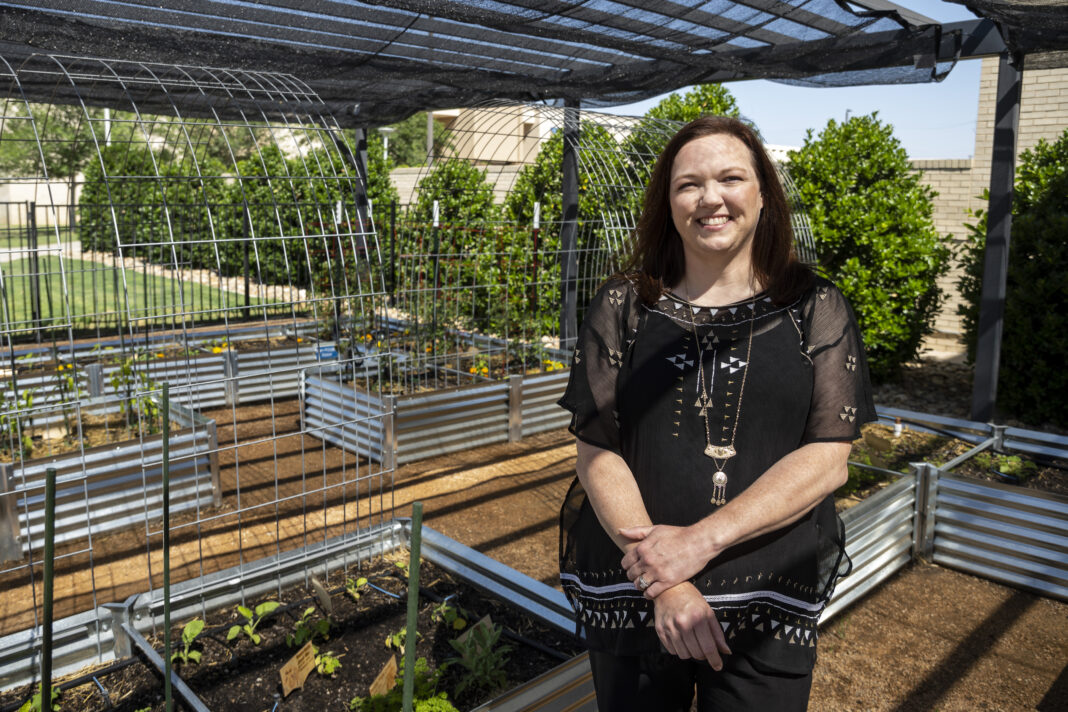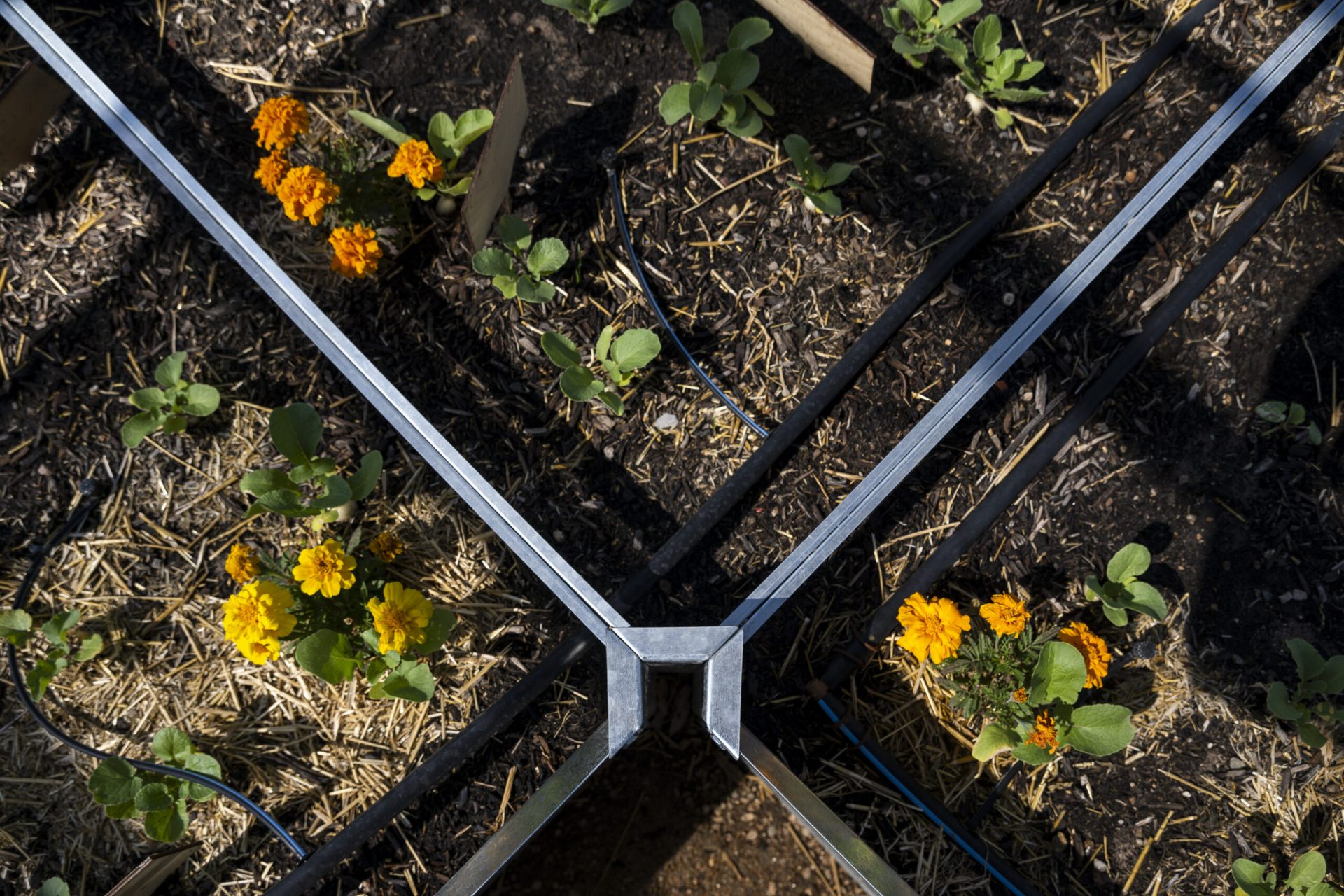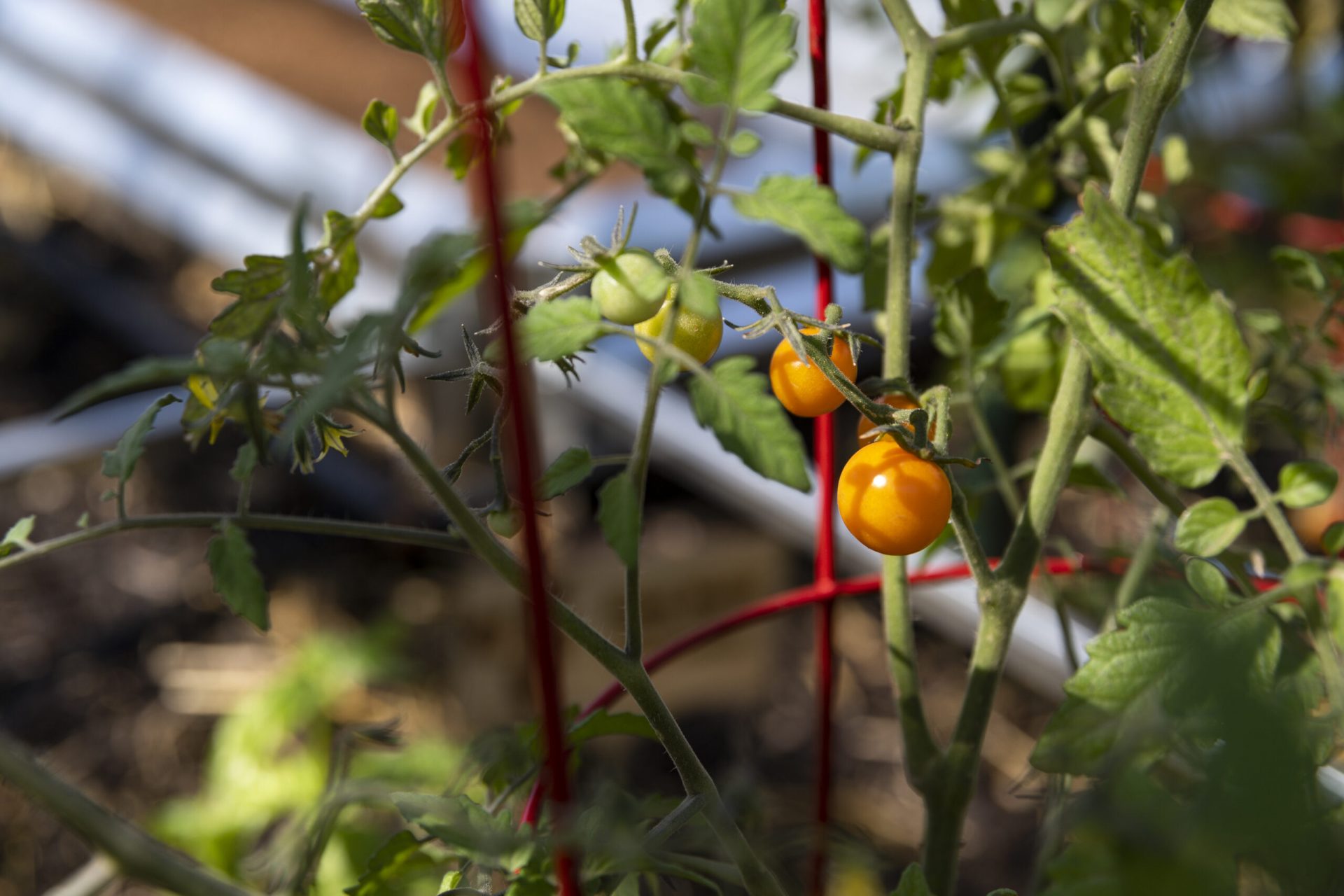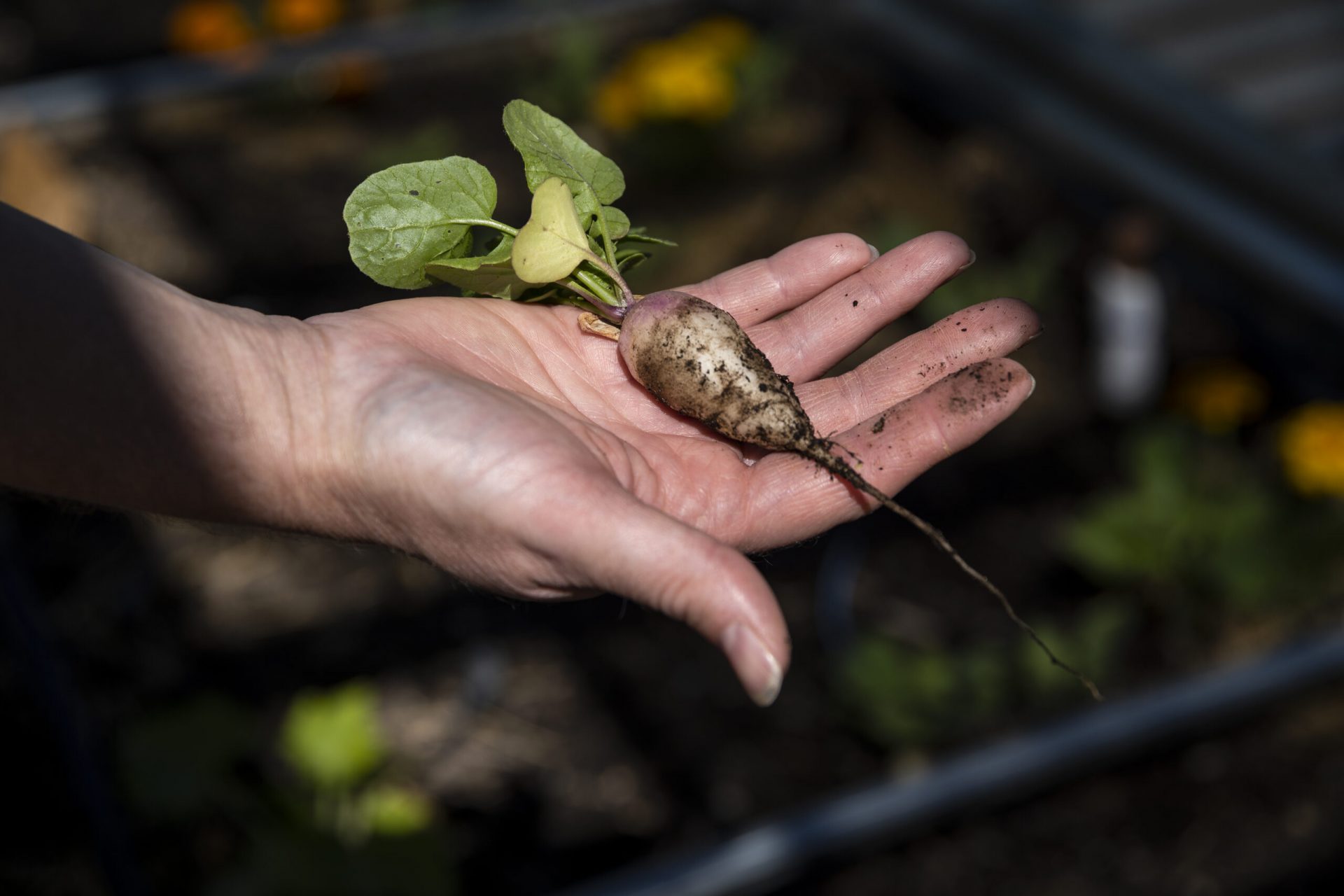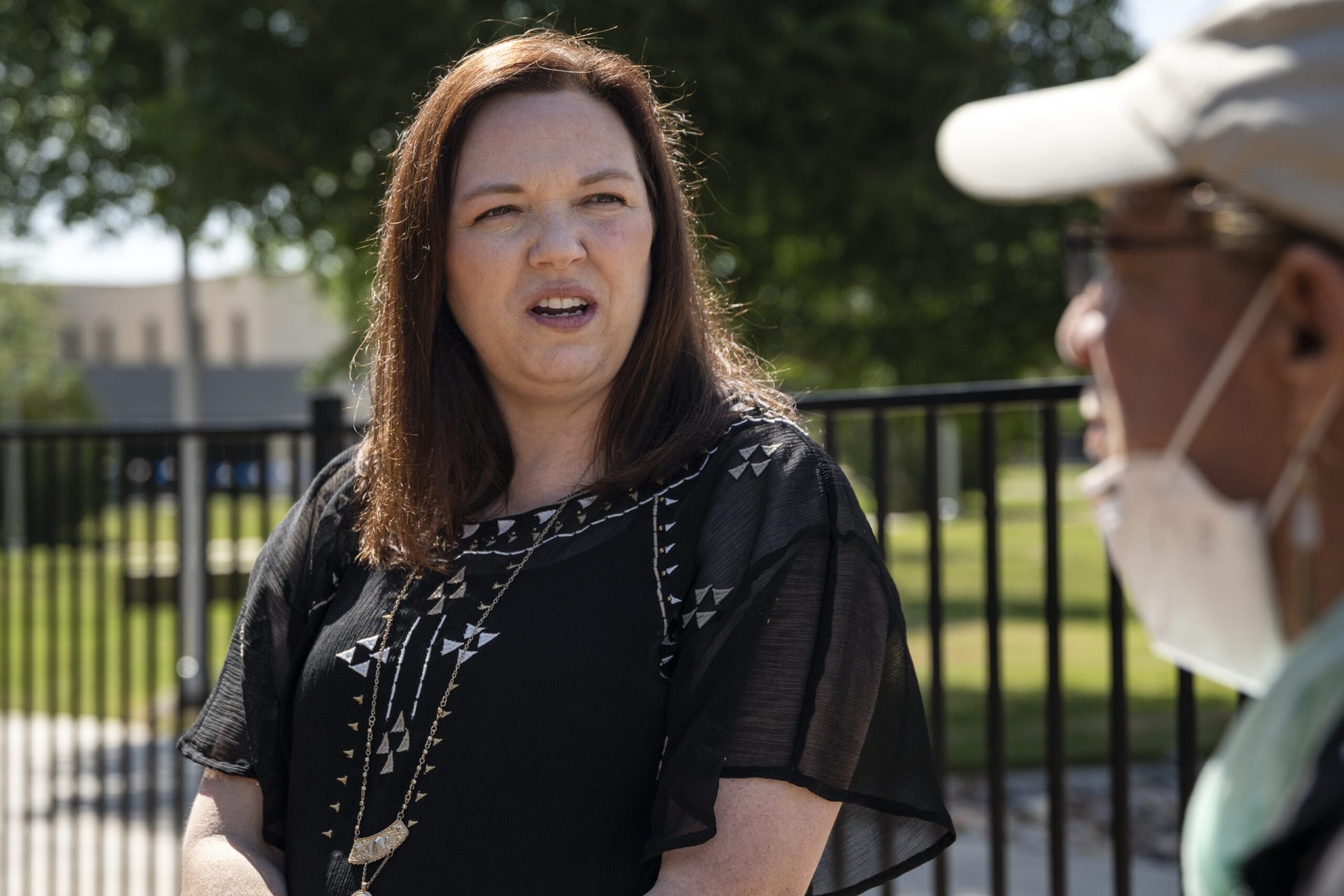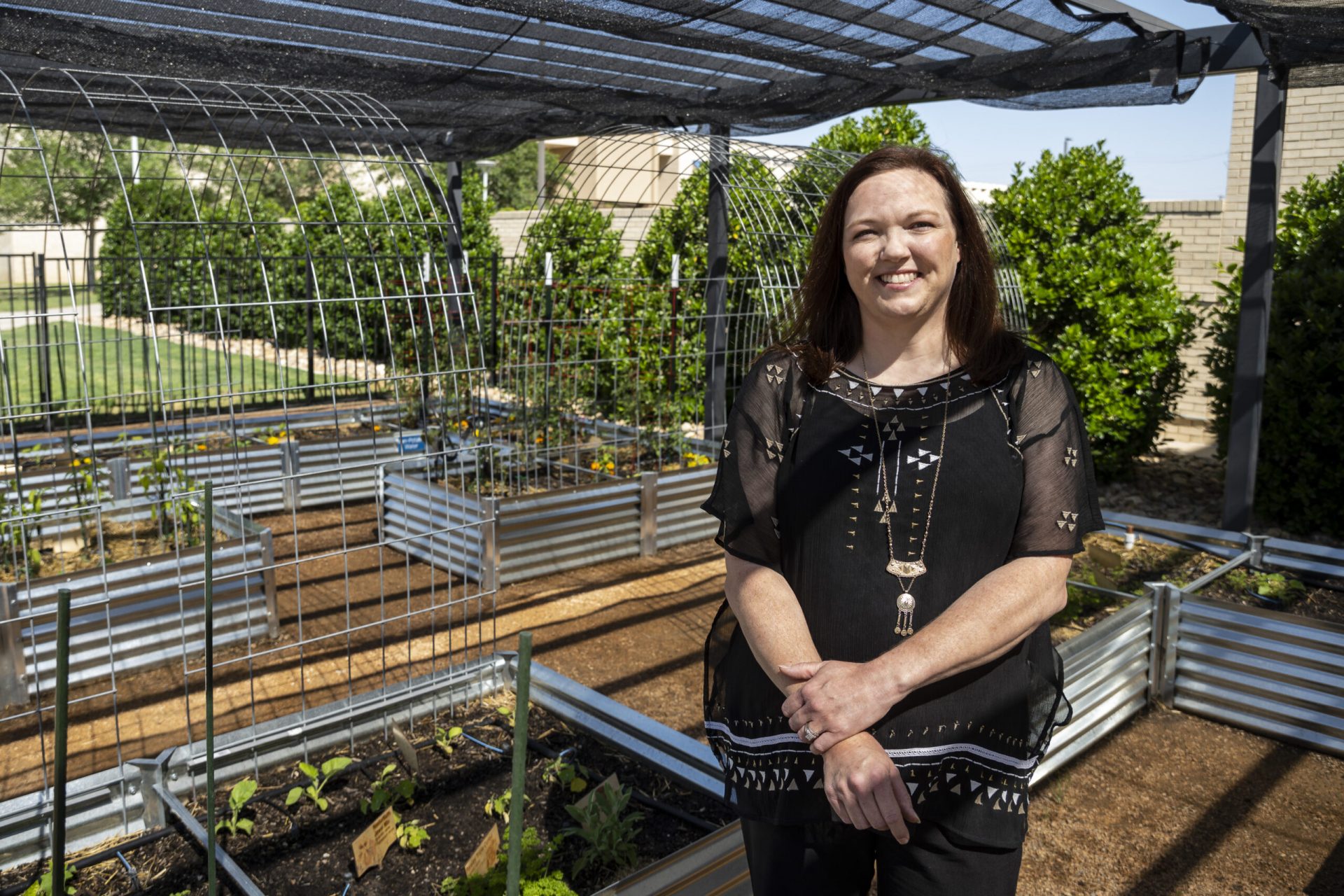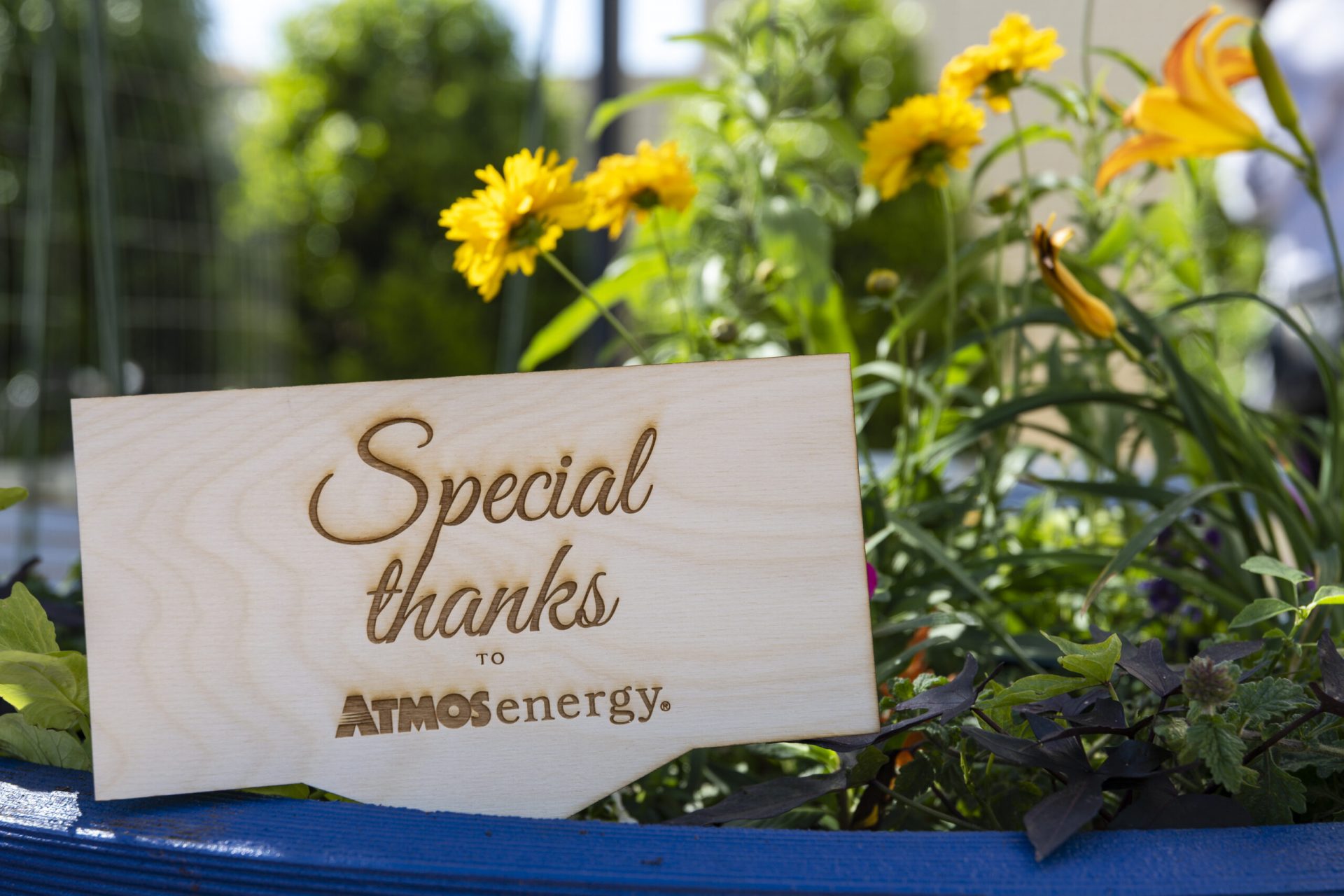Tucked away behind the Saulsbury Campus Center is the Atmos Energy Pantry Gardens at Odessa College.
The roughly 35 varieties of fruits and vegetables are growing in raised plant beds with a pergola overhead and a trellis for climbing plants. Although they are still growing, the produce will soon be available to students and families who make use of the Wrangler Food Pantry.
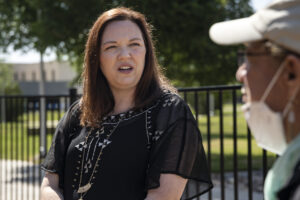
Director of Student Support Services Kristi Clemmer said the college opened the Wrangler Food Pantry in October of 2019.
“And one of the things that our students really were interested in asking for was fresh produce. We ran the pantry for quite a while just on the resources that we had and the produce would just disappear as soon as we could get it through the West Texas Food Bank,” Clemmer said.
“… We decided to explore some other options and this was just something that came up in a conversation. We talked about it and we decided that we wanted to be more sustainable with our vegetable choices. By having a garden, we’re able to bring in more produce to our small pantry on an ongoing basis,” Clemmer added.
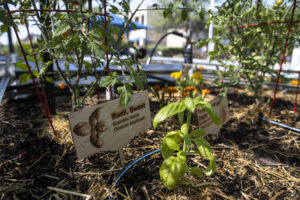
The area the produce is growing in encloses about 200 square feet. Despite the small area, there are a variety of melons, herbs, vegetables and flowers.
The garden is watered through drip irrigation and the produce is organic.
Clemmer said they started planting in early April.
“We already have tomatoes growing and so those will start coming in and then … the eggplant should be ready. I’m actually probably going to pick those today. Some of the things like the peppers are already producing. … I would say that by the end of May, we should be getting more items off of the garden,” Clemmer said.
During the semester, the pantry is open twice a week. During the summer, it’s open on Wednesdays, but Clemmer said they open it when the students need it.
“If they need us on a different day, we can arrange that. And then we are able to help them as they notice that we’re here.”
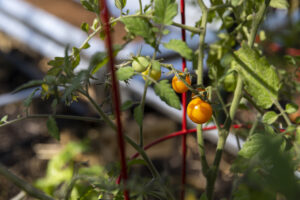
Clemmer said to use the pantry, you have to be an Odessa College student and fill out some paperwork.
“That’s required of us by the West Texas Food Bank …,” she added.
She said she expects more students to be drawn to the pantry as a result of the garden.
“I know that a few of our students only eat certain foods and we do have some international students that aren’t used to all this packaged stuff that Americans eat. They are often the ones that are asking, what kind of healthy options do you have that we can try? And so we are really hoping to be able to help them and the students with families,” Clemmer said.
So far, the pantry has been able to help about 1,800 individuals, including students and their families.
The garden will be replanted for the fall.
“In West Texas, we can grow about 10 months out of the year so we’re able to just switch over to different varieties that do well in the different climate. But students can come to the pantry year-round,” Clemmer said.
She added that they would start planning for fall around mid-August.
“Sept. 15 is kind of when you have to have it in so you have enough time for everything to grow well. And it also depends on the temperatures. So if it’s too hot, the fall stuff won’t do well. But we’ll start looking at the different varieties and getting it in the ground at least by early September,” Clemmer said.
She added that they planted a wide variety of produce that they knew would do well here.
“And I’m sure … we’ll have some favorite items. The items that come from the food bank, tomatoes and cucumbers, are among the top items, so we knew those would be popular. I think it’ll be a matter of time before they start telling us,” their preferences, Clemmer said.
The location for the garden was chosen by looking around campus for an area that was going to be noticeable.
“We wanted it not hidden away in the side, and also somewhere that was a good location for sun and water and drainage, and everything else and this spot just happened to be here and it had everything we needed. And what we will do, once this has kind of gone through some different seasons, is we want to expand to other places around the campus so that each building can be in charge of their garden and taken care of the maintenance of that. And then we can continue to expand different crops, so for example, one building might be in charge of potatoes, and that’s what they do. That’s something that we hope to do that can also spread awareness and the students can get involved in different areas. Our Children’s Center is very excited to come help, so there’s just a bunch of opportunities for student engagement and also the team, the OC team, is excited about it,” Clemmer said.

“Atmos is the college’s garden sponsor for five years. The company provided $30,000 for the garden, which covered the cost of the building and the structure and everything that is here. Our physical plant, they did everything except we bought these beds prefabricated and they made those, but the physical plant did everything else in house,” she said.
“Also this area has room for growth. You see all this empty area that we can add to as we grow into the project,” she added.
Clemmer noted that OC has a greenhouse on the culinary arts side that they have used.
“So we’ll be able to work together. They have provided us with tomatoes and lettuce from the greenhouse since the pantry opened,” Clemmer said.
“Odessa College is a great place for innovation and when employees have ideas a lot of times the administration listens and allows us to come up with projects that will really benefit our students,” Clemmer said.
Craig Stoker, director of communications for the West Texas Food Bank, said he is excited about the garden because it’s something the agency has been pushing for.
“We love fresh fruits and vegetables. If you look at trends over the years we have been pushing more fresh product into what we are providing,” Stoker said.
Even last year during the pandemic, they saw produce distribution expand.
Growing produce shows provides a food source that is yours.
“Everybody can probably figure out how to get some soil. I think it’s something that’s accessible. It’s something we certainly do at the food bank. We have gardeners on staff,” Stoker added.
Partners like the Jubilee Center have a garden.
“They’re popping up in more and more places,” Stoker said.
There are community development grants where neighborhoods can start their own gardens, which bring people together.
Something people don’t often think about is that college students may be struggling to put food on their tables.
“It’s a great partnership,” he said. “I’m so excited to see them grow.”

